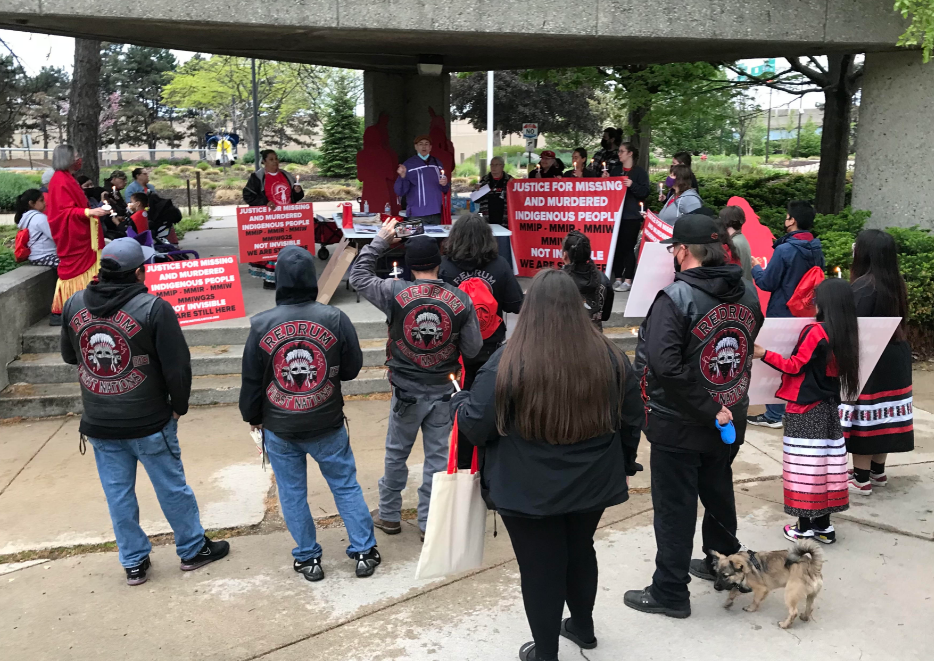
- Details
- By Levi Rickert
GRAND RAPIDS, Mich. — On a cool Saturday evening, some three-dozen gathered at Ah-Nab-Awan Park that sits between the Grand River and the Gerald R. Ford Presidential Museum in downtown Grand Rapids for MMIWG2S event that included speakers and then finally a vigil.
The event was part of a month-long series of activities hosted by the Native Justice Coalition to bring awareness to the serious issue of missing and murdered Indigenous persons.
“We need to shed light on this epidemic,” Cecelia Rose LaPointe (Keeweenaw Bay Indian Community), founder and executive director of the Native Justice Coalition, said. “It’s our job to educate the public about this problem.”
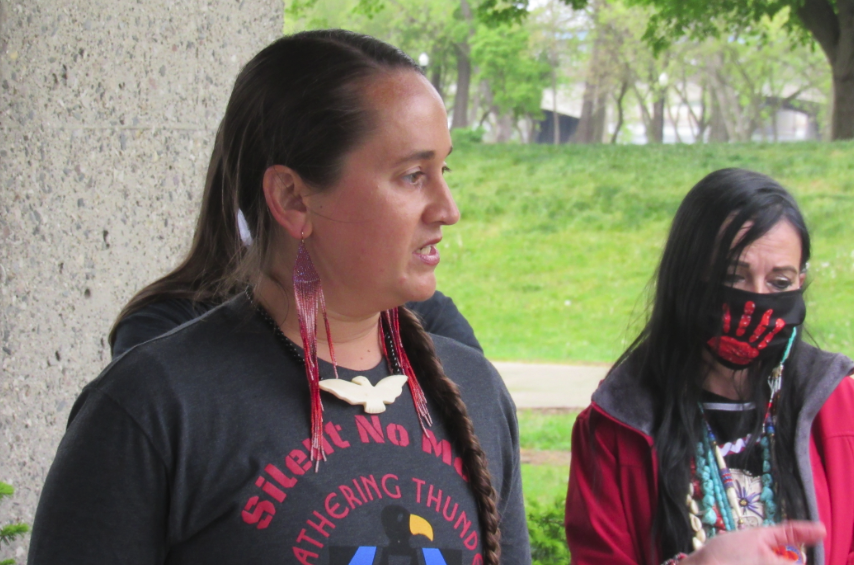
Several speakers recounted stories of their own stories of how the issue has affected them on a personal level.
Betty Davis (Turtle Mountain Chippewa), a retired Grand Rapids Public School administrator for the Native American program, recalled talking to a cousin named Tonya recently. Tonya's mother, Monica Bercier Wickre, Turtle Mountain Band of Chippewa enrolled member went missing April 7, 1993 in Aberdeen S.D. She was found (murdered) in the James River outside of Aberdeen S.D. in June 16, 1993.
The cousin told Davis that when her mother first went missing there was a sense of urgency to find her, but as days turned to weeks, their family knew she would be found dead.
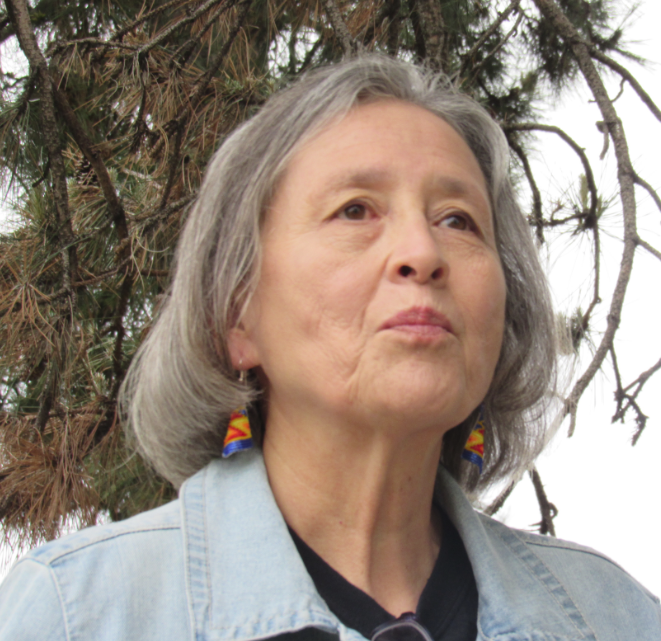
"The case was never solved, " Davis said. "Tonya said there has been no justice and wonders everyday 'only if we would have done...' or 'what if'."
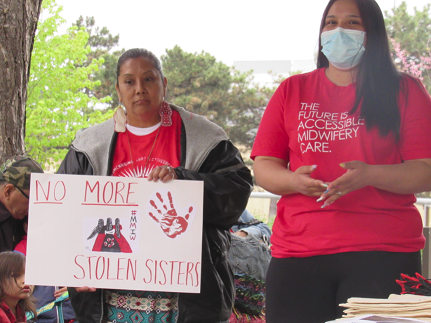
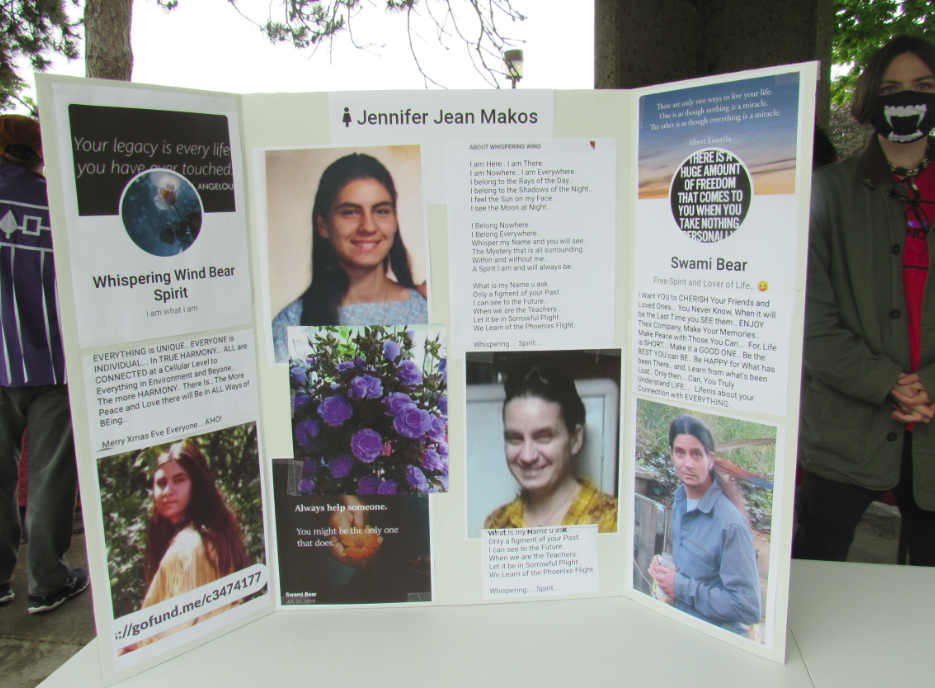
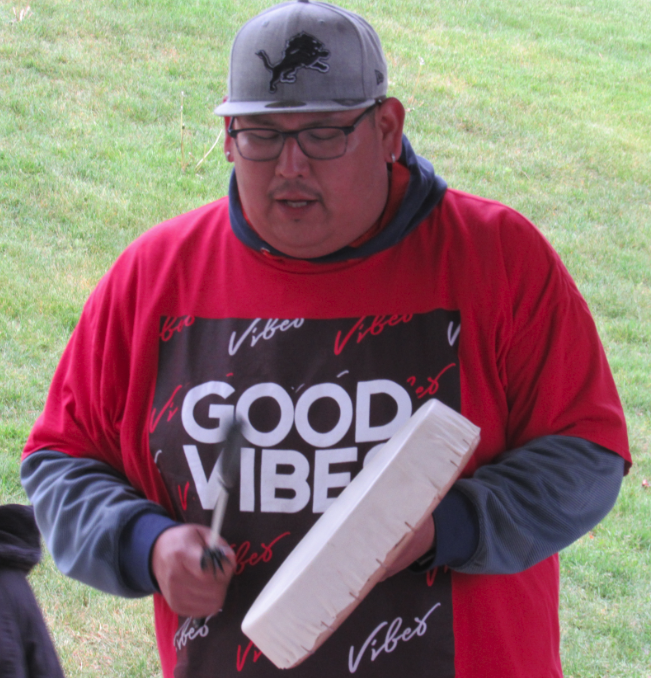
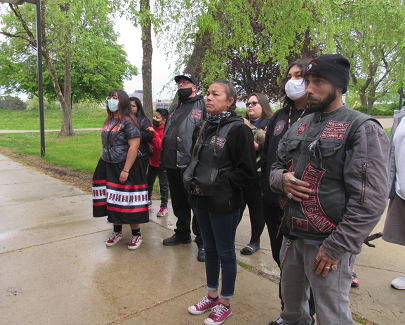
Native News Online photographs by Levi Rickert
Editor's Note: An earlier version of this article stated Tonya's mother's body was discovered in North Dakota. She was found (murdered) in the James River outside of Aberdeen S.D.
More Stories Like This
Native News Weekly (August 25, 2024): D.C. BriefsUS Presidents in Their Own Words Concerning American Indians
Two Murdered on Colville Indian Reservation
NDAA passes House; Lumbee Fairness Act Advances
NFL, Vikings to Host Native All-American Game, Youth Flag Clinic
Help us defend tribal sovereignty.
At Native News Online, our mission is rooted in telling the stories that strengthen sovereignty and uplift Indigenous voices — not just at year’s end, but every single day.
Because of your generosity last year, we were able to keep our reporters on the ground in tribal communities, at national gatherings and in the halls of Congress — covering the issues that matter most to Indian Country: sovereignty, culture, education, health and economic opportunity.
That support sustained us through a tough year in 2025. Now, as we look to the year ahead, we need your help right now to ensure warrior journalism remains strong — reporting that defends tribal sovereignty, amplifies Native truth, and holds power accountable.
 The stakes couldn't be higher. Your support keeps Native voices heard, Native stories told and Native sovereignty defended.
The stakes couldn't be higher. Your support keeps Native voices heard, Native stories told and Native sovereignty defended.
Stand with Warrior Journalism today.
Levi Rickert (Potawatomi), Editor & Publisher

